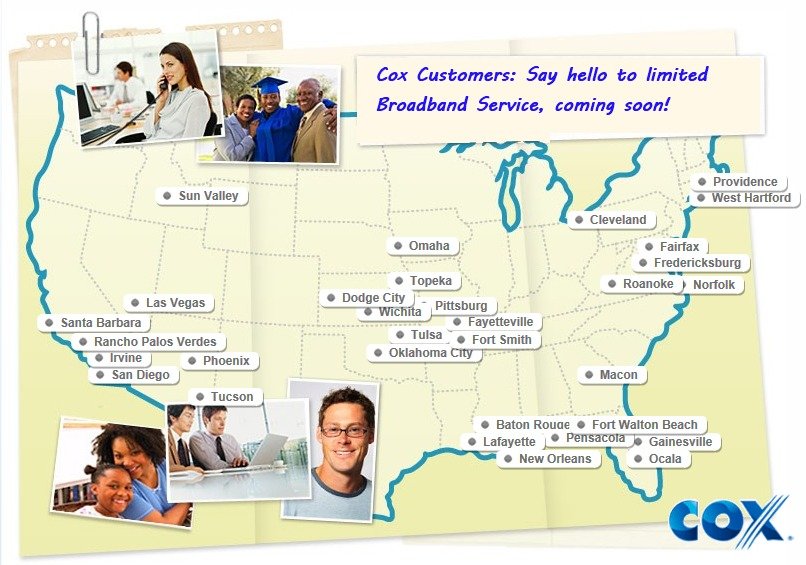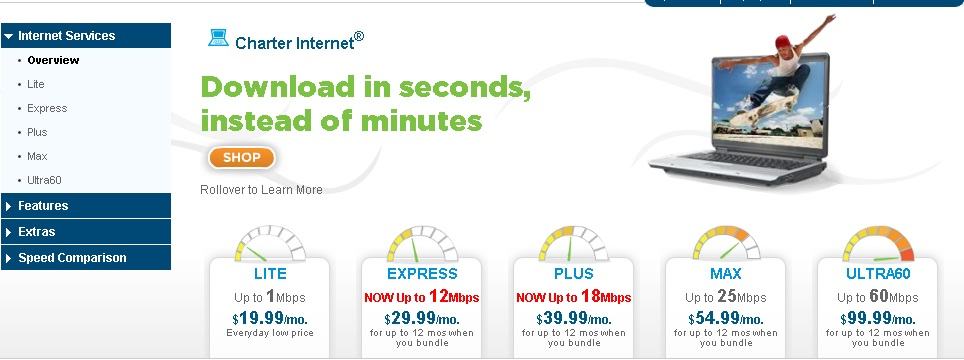 CenturyLink has unveiled its own discounted Internet access program for the income-challenged, loaded with tricks and traps buried in the fine print.
CenturyLink has unveiled its own discounted Internet access program for the income-challenged, loaded with tricks and traps buried in the fine print.
Dubbed CenturyLink Internet Basics, the 1.5Mbps DSL service is available to those who currently qualify for Lifeline Affordable Telephone Service, a federal program that provides discounts on basic monthly telephone service to eligible low-income consumers. The service sells for $9.95 a month, before taxes and fees.
But buried in the fine print are a number of surprises that deliver higher prices and some nasty surprises (underlining ours):
- Listed High-speed Internet rate of $9.95/mo. applies for first 12 months of service (after which the rate reverts to $14.95/mo. for the next 48 months of service), and requires a 12-month term agreement or 24-month term agreement (if purchasing Netbook);
- Customer must either lease a modem/router from CenturyLink for an additional monthly charge or purchase a modem/router from CenturyLink for a one-time charge, and a one-time High-Speed Internet activation fee applies;
- A one-time professional installation charge (if selected by customer) and a one-time shipping and handling fee applies to customer’s modem/router;
- Taxes, Fees, and Surcharges – Applicable taxes, fees, and surcharges include a carrier Universal Service charge, carrier cost recovery surcharges, state and local fees that vary by area and certain in-state surcharges. Cost recovery fees are not taxes or government-required charges for use (which means they are little more than bill padding junk fees). Taxes, fees, and surcharges apply based on standard monthly, not promotional, rates;
- The first bill will include charges for the first full month of service billed in advance, prorated charges for service from the date of installation to bill date, and one-time charges and fees described above.
- Netbook purchase must be paid in full to CenturyLink prior to shipment. Shipping and handling fees, and applicable taxes will apply. If customer purchases Netbook as part of the CenturyLink Internet Basic service, all warranty and support for the Netbook and accompanying equipment will be covered by the manufacturer or other identified third party, not CenturyLink.
- No software applications or wireless service are included with the Netbook.
- An early termination fee will apply based on the applicable monthly recurring service fee multiplied by the number of months remaining in the minimum service period, up to $200.
 Unlike Comcast, CenturyLink claims it will provide equivalent discounts for faster speeds — an important consideration for those with school-age children at home who may need multimedia capability for research and studies.
Unlike Comcast, CenturyLink claims it will provide equivalent discounts for faster speeds — an important consideration for those with school-age children at home who may need multimedia capability for research and studies.
CenturyLink also offers a netbook computer for an additional $150, plus shipping and taxes, at the time of enrollment in the program. The service also includes educational training, a 30-day money back guarantee, Norton Security Suite, and parental controls.
“While the Internet has become part of daily life for most Americans, many still aren’t connected because the cost is beyond their reach. CenturyLink is pleased to introduce this new program that offers affordable High-Speed Internet service and computers to those who need help getting online,” said CenturyLink CEO and President Glen F. Post, III.
That and the fact the company was required to offer discounted Internet service as a condition for the approval of their acquisition of Savvis, a web hosting company, according to Broadband Reports.
 Like Comcast, participation in the program requires meeting a number of terms and pre-conditions:
Like Comcast, participation in the program requires meeting a number of terms and pre-conditions:
- Reside where CenturyLink offers Internet service;
- Have not subscribed to CenturyLink Internet service within the last 90 days and are not a current CenturyLink Internet customer;
- Do not have an overdue CenturyLink bill or unreturned equipment;
- Follow current guidelines for Lifeline/TAP phone service programs.
Free training programs will be introduced starting this fall in Foley, Ala.; Dumas, Ark.; Eagle, Colo.; Tallahassee, Fla.; Phoenix; Galesburg, Ill.; Franklin, Ind.; Billings and Great Falls, Mont.; Las Vegas; Farmington, N.M.; Rockingham, N.C.; Lorain, Ohio; Columbia River Gorge, Ore.; Greenwood, S.C.; Seattle and Yakima, Wash.; and Glenwood City, Wis. Other communities where the training is taking place will be announced in 2012.
Many of the terms and conditions of the discounted Internet program are not very different from standard CenturyLink new customer promotions, which promise discounted service but leave a lot of surprise charges, fees, and contract commitment details to the tiny fine print customers have to search to find (or wait to find out on their first bill.)
Yet like Comcast, CenturyLink will seek to take credit for addressing the digital divide when in fact they are not selling the service to those who don’t want or need $40 Internet bills, but are not poor enough to qualify for the $10 Internet program on offer here.


 Subscribe
Subscribe






